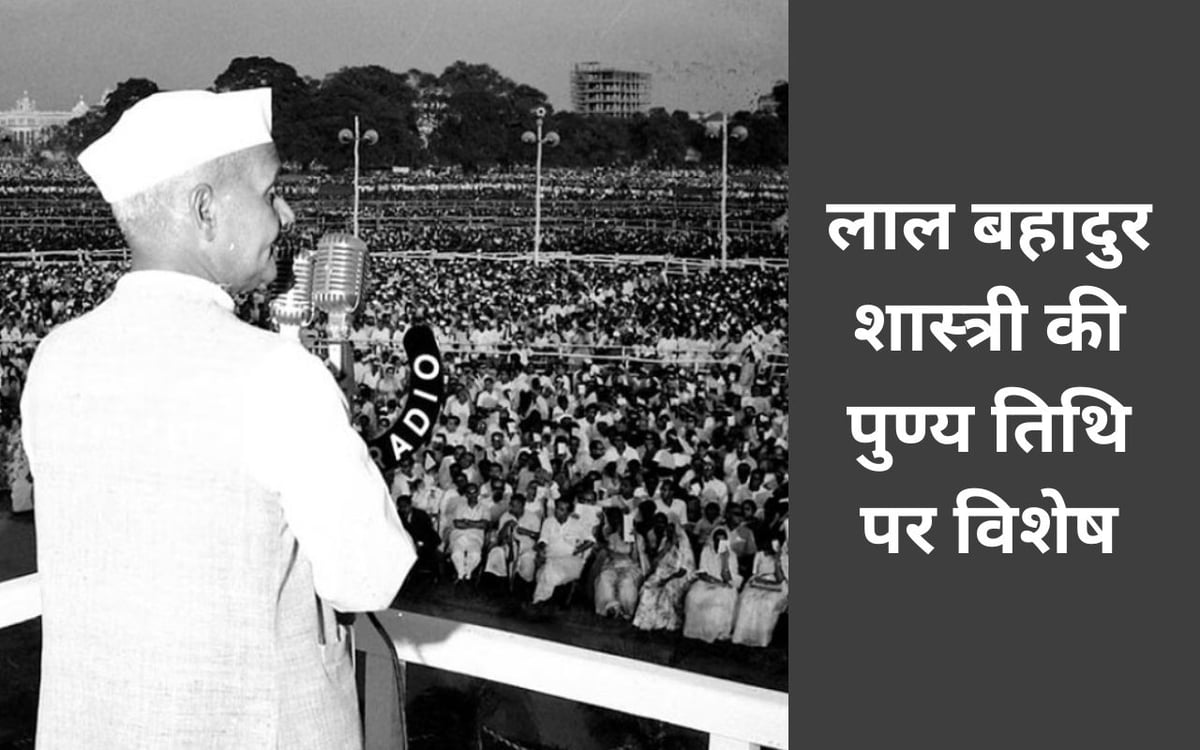After the long war between India and Pakistan in 1965, when a peace agreement was signed between the two countries in Tashkent, Soviet Union (now in Uzbekistan) on January 11, 1966, peacekeepers from both sides heaved a sigh of relief. But Indian Prime Minister Lal Bahadur Shastri, who had gone there for this agreement, died under mysterious circumstances just a few hours after the signing of the agreement. In Delhi, the capital city immersed in joy, this news came like a wave of grief that it became difficult for the countrymen to bear it patiently.
Even today, when that incident is discussed, people’s feelings towards Shastri ji swell to such an extent that there are as many words as there are words. If we discuss other aspects of his personality, there is no doubt about his simplicity, morality and honesty being unmatched. When it comes to election ethics, even the biggest leaders have been seen deviating from them, but Shastri ji proves to be incomparable in this regard too. Shastri ji, who was elected from Allahabad seat of Uttar Pradesh in the year 1957, was again the Congress candidate from the same seat in 1962. Only one or two days were left for the election campaign and despite the competition not being tough, he was working day and night to reach out to all his voters. In this sequence, while returning after addressing an election meeting, he saw that the jeep of a candidate contesting against him had broken down midway and his supporters were worried that by the time the mechanic would come and repair the jeep, their There will be no time left to reach the scheduled venue of the meeting. If the voters who came to the meeting return angry, the electoral atmosphere will be adversely affected. Incidentally, in those days, neither were there as many jeeps and cars as there are nowadays so that a replacement could be arranged immediately, nor were the means of transport so convenient that remote areas could be reached conveniently.
Seeing the rival candidate in trouble and sweating, Shastri ji stopped his jeep and went to him and asked if he could help him. The opponent could not think of any answer. Understanding his hesitation, Shastri ji proposed that since he also had to go the same way, he would take him in his jeep to his meeting place. There both will take turns in speaking to the voters. After listening to both, voters will decide for themselves to whom they should cast their vote. Ultimately, it is up to the voters to decide whom they will elect as their representative. Even though the rival candidate’s hesitation did not allow him to agree to this, Shastri ji did not turn away from his help. He himself sat in the jeep of one of his supporters passing by and gave his jeep to his opponent. When a supporter objected to this, he said, ‘If our opponents cannot go to present their views to the voters, then the electoral contest will not be equal. It should not happen.’
Not only his morals but also his determination was amazing. During the agreement with Pakistan in Tashkent, two small meetings between him and General Ayub did not yield any result, because Shastri ji did not at all agree to return the land won by the Indian Army in the war, but later he agreed to it. , then Ayub started emphasizing on Kashmir. Here, Shastri ji was determined that there should be no discussion on Kashmir and he did not let General Ayub move ahead of his determination. Finally, disappointed, General Ayub suddenly pleaded with Shastri ji, ‘Please do something in the matter of Kashmir so that I too will be able to show my face in my country,’ but Shastri ji also rejected his ’emotional tyranny’. Diya and said, ‘Sir, I am sorry, but I cannot be of any service to you in this matter. ,
In the last session of the talks between the two leaders, it was written in the draft of the agreement presented by Pakistan, ‘All issues between the two countries will be resolved peacefully under the UN Charter.’ Shastri ji insisted that in this typed draft, General Ayub should add in his own hand that ‘without resorting to weapons.’ Ayub did the same and the agreement was concluded. In 1966, Shastri ji was posthumously awarded the highest civilian honor ‘Bharat Ratna’ by a grateful country.

